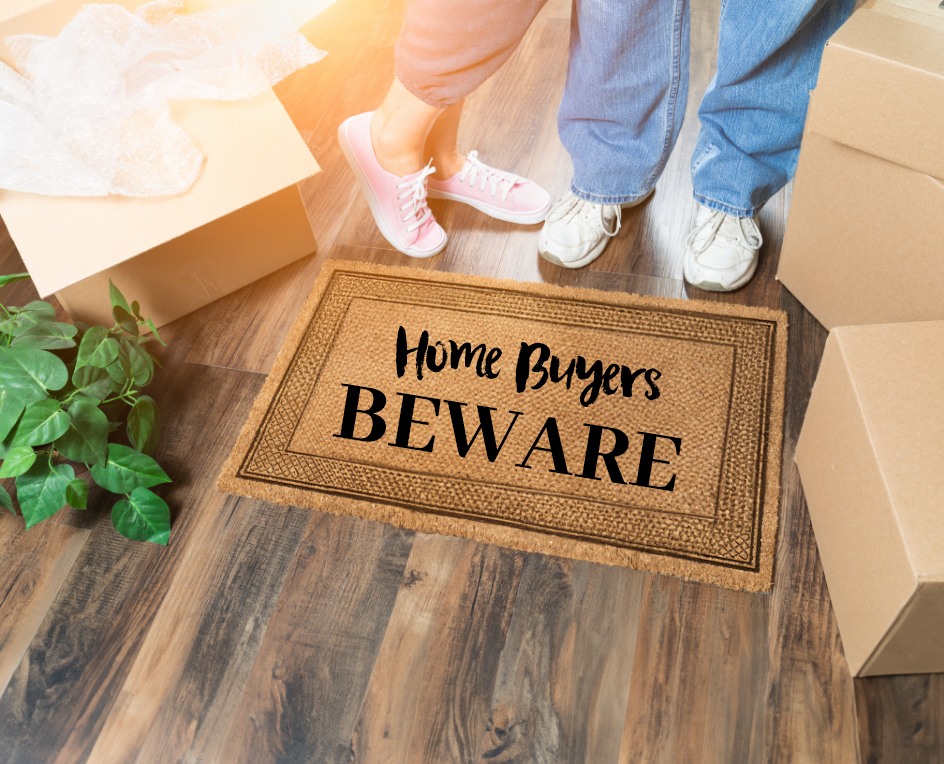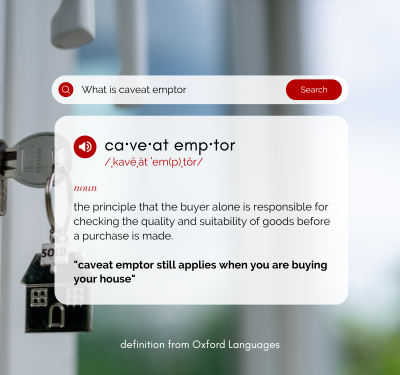Virginia is a Buyer-Beware State
The Latin term “caveat emptor,” or “let the buyer beware,” carries significant weight, particularly for homebuyers who plan to enter the housing market without the assistance of a buyer’s agent. The following is a breakdown of what caveat emptor means for homebuyers and how they can effectively navigate it.
It’s worth noting that Virginia is a Buyer-Beware state. This principle underscores the significance of due diligence and exhaustive research before purchasing a property. It’s imperative to be cautious when buying a home without representation.
Understanding Caveat Emptor
Caveat emptor requires buyers to assess a property’s condition and suitability before purchasing. The buyer must conduct thorough inspections, ask relevant questions, and gather essential information to make informed decisions. With representation, buyers can gain a professional real estate agent’s much-needed guidance and expertise, making it imperative to be extra vigilant throughout the process.
Mitigating Risks
While caveat emptor emphasizes buyer responsibility, there are strategies to mitigate risks associated with purchasing a home without representation:
- Property Inspections: Conduct thorough inspections by qualified professionals to uncover potential issues or defects. Inspections provide valuable insights into the property’s condition, from structural concerns to hidden damage.
- Research and Due Diligence: Research the neighborhood, market trends, and comparable property prices. Understanding the local real estate landscape can help buyers gauge a property’s value and suitability.
- Legal Protections: Familiarize yourself with local laws and regulations governing real estate transactions. Consult with a lawyer to ensure you follow the rules and safeguard your rights when buying a property.
Navigating Caveat Emptor in Real Estate Transactions
Buyers must exercise caution and diligence when independently purchasing a property. However, caveat emptor doesn’t absolve sellers of fraudulent practices or misrepresentation. Buyers should be vigilant for deceit or misinformation and seek recourse if necessary.
The Role of Buyer’s Agents
Navigating caveat emptor can be daunting for solo buyers, so enlisting the services of a buyer’s agent can provide invaluable support and expertise. Buyer’s agents advocate for their clients’ interests, negotiate favorable terms, and provide guidance throughout the buying process. Leveraging their knowledge and experience, they help mitigate risks and streamline the home-buying journey.
In closing, caveat emptor reminds homebuyers to proceed cautiously and thoroughly when purchasing a property independently. While the principle requires buyers to conduct due diligence, seeking guidance from professionals, such as buyer’s agents and legal advisors, can offer added assurance and protection.
Real estate transactions can be complex and daunting, but buyers can make informed decisions and safeguard their investments by understanding the legal principle of caveat emptor and adopting proactive strategies. One such strategy is to hire a reputable real estate agent who can guide them through the buying process and offer valuable insights into the market. Buyers can confidently approach real estate transactions with the proper support and knowledge.

At Shaheen, Ruth, Martin & Fonville Real Estate, we don’t just know homes, we also know people. As a result, we’re closely connected to our communities. We’re driven by the privilege of connecting people to lifestyles and finding the right house in the right neighborhood. Above all, we love helping you settle into your new home and your community.
If you’re ready to start your home search, you can do so here at srmfre.com. Our agents are ready to help you find your next home in Richmond, Williamsburg, and the Irvington areas; give us a call at (804) 288-2100 or (757) 603-3001.
Check this article from Investopedia to learn more about caveat emptor.










